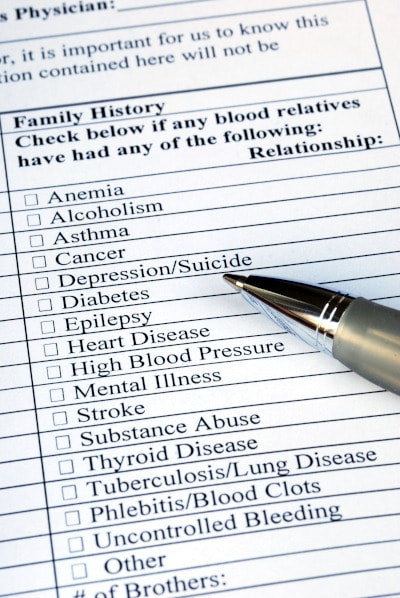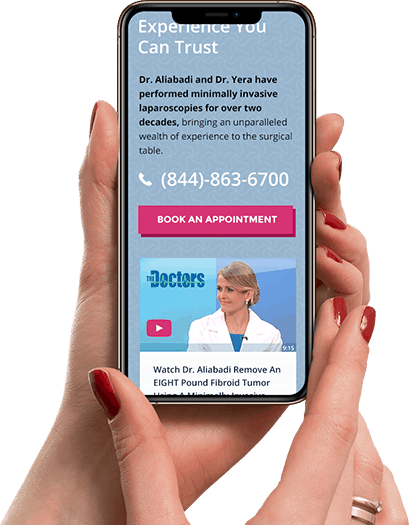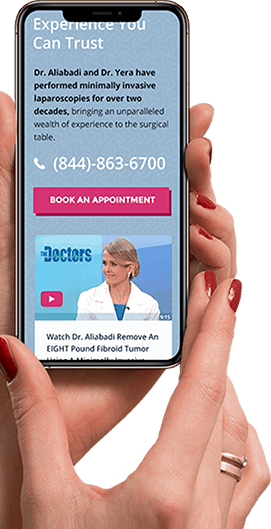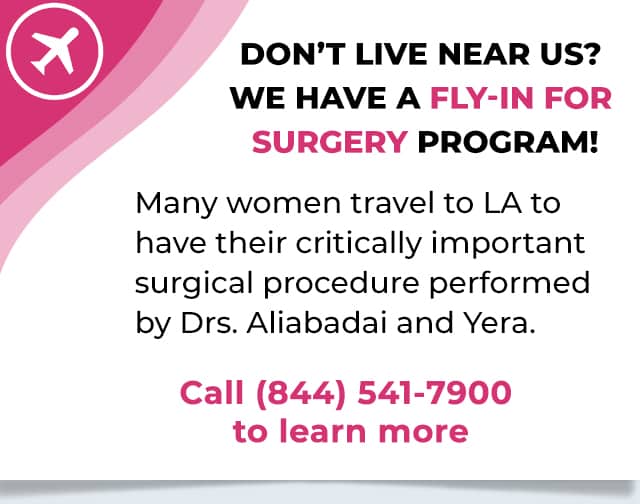Understanding Family Health History Impact
Back when we still dealt with paper-based forms, the space after the “family health history” was barely a couple of lines long. Yet, family history is exceedingly important when designing your preventative health care plan.
When we look at your family, we gather hints about your genetic predispositions and your most ingrained lifestyle choices. We may even see a few personality-shaping events! It will tell us what your areas of risk are and where we should concentrate our screening efforts.
Unfortunately, not everyone has access to the same family history knowledge. So, what can we do to fill in these information gaps?

What is family health history?
According to the Centers for Disease Control and Prevention, your family health history is made up of all the major events listed in the medical records of the other members of your family.
Most healthcare professionals will ask you about your family history when you first come to a new practice. If pressed for time, most people will give a short “family disease history” for their immediate circle (parents and siblings); but if we look deeper, there’s a lot more info we can find!
With our current knowledge of genomics (the study of all genes that make up a person’s DNA), we now know that genes affect much more than what’s immediately obvious.
Ideally, each new doctor who sees you will have access to the complete medical records of all members of your family. The more information you have, the easier it will be to draw parallels and make relevant predictions for your health.
Why is it important to know your family health history?
Your family health history information gives us strong hints about your future health and risk factors to watch out for. This includes directly genetic diseases (for example, sickle cell anemia) and others that are only partially genetic but you can still prevent.
This includes many types of chronic diseases, such as high blood pressure, autoimmune problems, and several types of cancer (like breast, lung, or ovarian cancer). For women, looking at your close relatives will also tell us when you can expect menopause or if you are at an increased risk of specific pregnancy complications.

Sometimes, family health knowledge can be discouraging, especially if we see the same medical conditions and causes of death repeatedly. However, just because you have a genetic predisposition to something doesn’t mean it’s inescapable.
Instead, take this information as a “cheat sheet” to be proactive about your personal health and choose the lifestyle changes that will have the biggest impact:
- Is breast cancer widespread in your family? Now we know to start routine mammograms earlier, so we can detect it in its early stages
- Are heart conditions common on one side of your family tree? Knowing this from a young age will help you manage your weight and lifestyle habits. Bar the occasional birth defect, most types of heart disease can be prevented.
- Does everyone in your family wear glasses? Make sure your kids are screened early before they start having problems at school.
- Do you come from a long line of “intense personalities” or “starving artists”? Many mental health issues are not purely genetic, but they run in families. If your family oddities are disruptive enough to get in the way of your career, a diagnosis and treatment can help.
Ideally, each new doctor who sees you will have access to the complete medical records of all members of your family.
Bridging the socioeconomic gap in family health knowledge
In America, it’s a sad reality that socioeconomic status will affect your health. People from disadvantaged groups are more likely to be seriously ill for longer, have more complex health conditions, and receive poorer care overall.
The reasons for this are complex and would fill literal chapters in a public health textbook. But according to a recent study published by the journal Genetics in Medicine, we can now add a lack of family history knowledge to this list. This study surveyed over 100,000 people who were part of the “All of Us” research program and asked them to rate their knowledge of their family history.
Only 37% of them confidently said they knew “a lot” about their family’s health records. Meanwhile, 60% said they knew “some” or “a little,” while 3% knew nothing.
Who was more likely to know little or nothing? Mainly, low-income men belonging to sexual, gender, or ethnic minorities. This family health history gap is worrisome, as low-income people are precisely those who stand to benefit the most by knowing what illnesses to watch out for.
Where does this lack of knowledge come from? At this point, we can only speculate. Some of the reasons may include:
- Lack of access to genetic testing, which tends to be expensive and not covered by insurance
- In low-income families, older family members are more likely not to have received a proper diagnosis
- Estrangement from the rest of the family, which is relatively common in the case of LGBTQ people
- For people from an immigrant ethnic background, lack of access to foreign health records and loss of contact with extended family
- If you don’t have direct access to your relatives, access to this information may require chasing obituaries or death certificates, which is expensive and time-consuming
How can I complete my family health tree?
So, what happens with the gaps in your knowledge? If you think you are likely to rank yourself as knowing only “some” or “a little,” then it’s not too late.
Drafting your own medical history can also allow you to reconnect with those cousins you don’t see as often or even provide a good starting point to trace your genealogy.
How to get started with a medical family tree?
Before you gather information, you should identify whom you need to include in your health history. Draw up a list that includes your:
- Parents
- Siblings
- Children
- Direct aunts and uncles (your parents’ siblings)
- Direct nieces and nephews
- First cousins
- Grandparents
Your in-laws, parents’ cousins, or cousins who married into the family don’t need to be included. You can also use a basic medical genogram template to organize all the people in your family and their relation to you.

Approaching your family for a complete history
Family dynamics change a lot. Depending on your family, you may want to approach each member separately and ask about their health in private. You can also organize a family gathering, explain your project, and promise to share the information.
If you are estranged from some members of your family, try approaching someone else who has access to them instead. Incomplete information is still valuable! You can also enlist your primary care doctor for help: they can mail a questionnaire to people who may not wish to speak with you directly.
What questions to ask about family medical history?
There are five essential things you should know about all the people you identified in the first step:
- What serious illnesses or health problems they’ve had
- At what age were they diagnosed
- If they suffer from any significant allergies
- For women, if they had any miscarriages or stillbirths
- For those who have passed away, their cause of death
If you don’t already know, make sure to ask the older family members about their (and your) ethnic background. Certain ethnic groups have a higher likelihood of specific genetic conditions, even if they are not visible among your immediate circle.
Organizing the information
Before you give it to your doctor, you will need to organize all the collected information. You can use a downloadable family medical history template: there are many free options, and some only require you to tick a box.
One of the best free tools for this is My Family Health Portrait, created by the U.S. Surgeon General’s office. This web-based tool is easy to access and very intuitive. It will generate a family tree that you can continuously update as more information arises and then print it or e-mail it to your healthcare provider.
About The Outpatient Hysterectomy Center
As two of the nation’s leading obstetrics and gynecology surgeons, Drs. Thaïs Aliabadi and Ramon Yera offer the very best in women’s health care. Together with their warm professional team, they create a special one-on-one relationship between patient and doctor.
We invite you to establish care with the Outpatient Hysterectomy Center. Please make an appointment online or call us at (844) 863-6700.
The Outpatient Hysterectomy Center is conveniently located for patients residing throughout Southern California and the Los Angeles area. At the Cedars-Sinai Medical Center, we are near Beverly Hills, West Hollywood, Santa Monica, West Los Angeles, Culver City, Hollywood, Venice, Marina del Rey, Malibu, Manhattan Beach, and Downtown Los Angeles.










